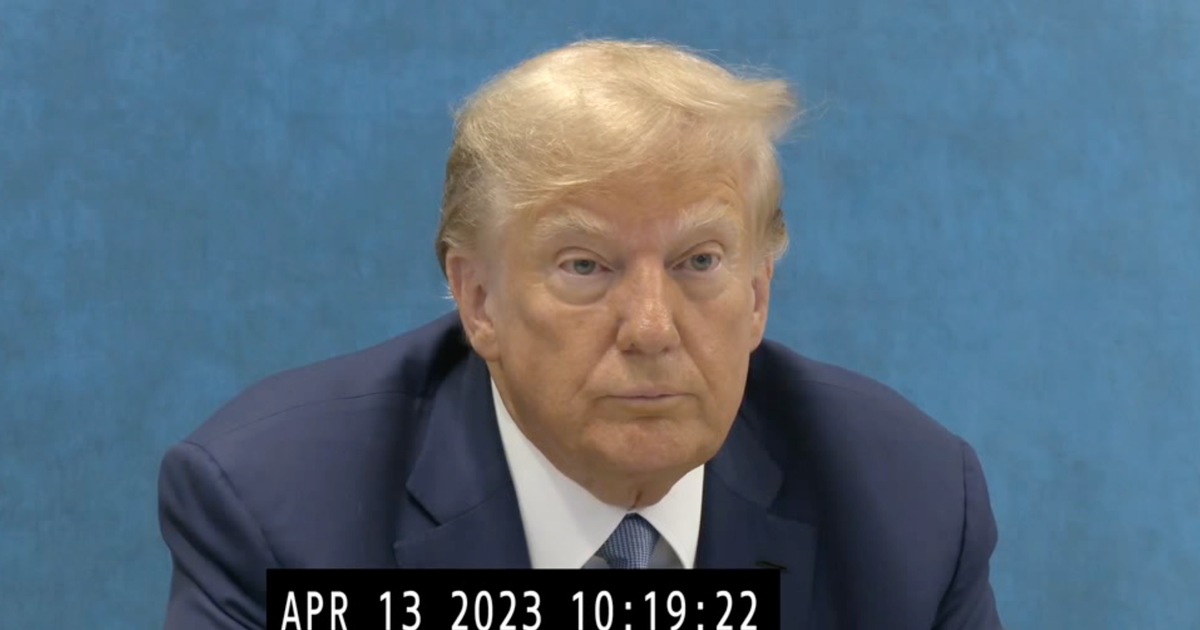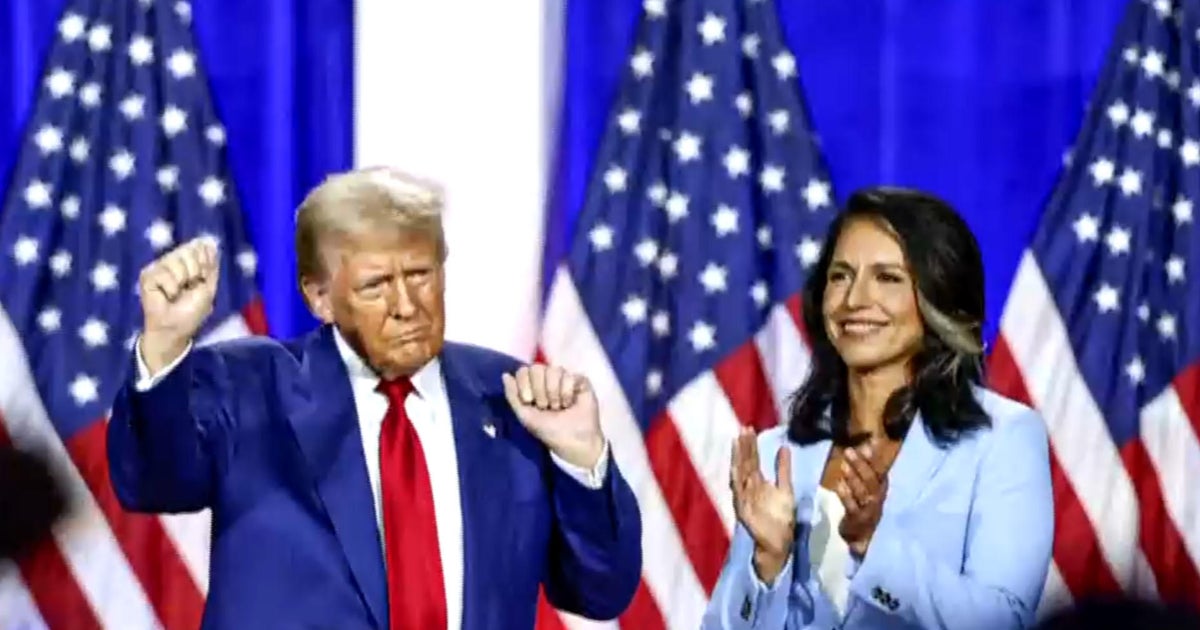CBS News
Deposition video shows Trump claiming he prevented “nuclear holocaust” as president

Combative, angry and prone to grandiose claims — newly unveiled footage of an April 2023 deposition gives a glimpse into how former President Donald Trump behaves when testifying under oath.
The video, released to CBS News on Friday in response to a freedom of information request, shows Trump claiming to have averted a “nuclear holocaust” and “saving millions of lives” as president. A transcript of the deposition was previously made public as an exhibit in Trump’s New York civil fraud case.
Trump testified at trial on Nov. 6, and his testimony that day often mirrored the April deposition.
During the trial, Trump said he was too “busy in the White House” to worry about his businesses. “My threshold was China, Russia and keeping our country safe,” he said.
It echoed a response he gave in his April 2023 testimony in a small conference room with New York Attorney General Letitia James. He went further that day, explaining just what he believes he kept Americans safe from:
“I was very busy. I considered this the most important job in the world, saving millions of lives. I think you would’ve had nuclear holocaust if I didn’t deal with North Korea. I think you would’ve had a nuclear war if I weren’t elected. And I think you might have a nuclear war now, if you want to know the truth,” Trump said.
Kevin Wallace, a lawyer for James’ office, interjected.
“I’m not going to use my seven hours on nuclear war,” Wallace said, before asking if any business concerns arose during Trump’s presidency.
“I can virtually not think of anything,” Trump said at the start of a three-minute-long meandering reply in which he lauded many of his properties for being profitable and criticized “violent crime in the streets” of New York City.
Trump, his two adult sons and the Trump Organization were found liable for fraud before the case went to trial to resolve other allegations, including falsification of business records, conspiracy and insurance fraud. James’ office is seeking $370 million and sanctions including a lifetime ban preventing Trump from working in New York real estate. The judge in the case has indicated he will issue his ruling in the coming weeks.
In both the deposition and in courtroom testimony, Trump often focused his ire on James and Wallace. On the stand in November, he called the case a “shame” and a “disgrace” while implying that he was being punished for his success. He used similar language during the deposition in April:
“You don’t have a case and you should drop this case. And it’s a shame that somebody that’s done such a good job, the Convention Center in New York, so many things I did for this city, the job on the west side of Manhattan, thousands of people employed,” Trump said. “And now I have to come and justify myself to you. I have to come after doing all of that and paid massive taxes, state taxes, and city taxes. And now I have to come in here and justify myself, and have crowds of people waiting in the street. It’s a disgrace.”
The full seven-hour deposition closely parallels his in-court testimony. Trump said both times that he separated himself from his business and put his assets in a trust, while claiming to have gone further than President George Washington, who “had two desks … one for his business and one for running the country. I could have had that.” (In 2019, when Trump first made his claim about Washington’s desks, a historian at Mount Vernon said there was no evidence that it was true.)
One person missing from Trump’s deposition is the presence of a judge. In Trump’s trial testimony — and as recently as this week in a different case — Trump also pointed at the bench, claiming to be victimized by the jurists overseeing proceedings, calling them “unfair” and “biased.”
Trump also targeted some other familiar foes in both the deposition and during the trial, including Forbes magazine. The publication revealed in 2017 that Trump and his company had vastly misrepresented the size of his triplex apartment in Trump Tower.
At trial, James’ office said the revelation caused the property’s valuation to drop dramatically, prompting a crisis of sorts for executives who were looking to boost Trump’s net worth. In his deposition, Trump pointed to the magazine’s ownership to cast doubt on its reporting.
“Forbes doesn’t know about us. Forbes, I read Forbes. You know, they’re owned by China. They’re owned by the Chinese, and they have their own agenda,” Trump said, referring to an investment group based in Hong Kong that bought the magazine in 2014.
James’ office alleged in the fraud case, and New York Judge Arthur Engoron agreed, that Trump and his company for years inflated the values of his properties and net worth as part of a scheme to convince banks and insurers to give them favorable terms on deals. Trump said, in both the deposition and in trial testimony, that — far from falsely inflating his net worth — in fact he underrepresented it. He insisted that his “brand value” makes him worth billions more than even his own financial statements reflect..
Exhibits shown during the trial indicated that in approving the loans at the center of the case, banks explicitly indicated they would not consider “brand value” when assessing Trump’s finances. But that didn’t stop Trump and his lawyers from often focusing on brand value anyway.
“Probably my most valuable asset I didn’t even include on the statement and that’s the brand. I didn’t even include that. The brand — if I wanted to create a statement that was high, I would have put the brand on,” Trump said.
CBS News
Trump makes more Cabinet picks but some top economic posts remain unfilled

Watch CBS News
Be the first to know
Get browser notifications for breaking news, live events, and exclusive reporting.
CBS News
Open: This is “Face the Nation with Margaret Brennan,” Nov. 24, 2024

Watch CBS News
Be the first to know
Get browser notifications for breaking news, live events, and exclusive reporting.
CBS News
Popular gluten free tortilla strips recalled over possible contamination with wheat

A food company known for popular grocery store condiments has recalled a package of tortilla strips that may be contaminated with wheat, the U.S. Food and Drug Administration said Friday. The product is meant to be gluten-free.
Sugar Foods, a manufacturing and distribution corporation focused mainly on various toppings, artificial sweeteners and snacks, issued the recall for the “Santa Fe Style” version of tortilla strips sold by the brand Fresh Gourmet.
“People who have a wheat allergy or severe sensitivity to wheat run the risk of serious or life-threatening allergic reaction if they consume the product,” said Sugar Foods in an announcement posted by the FDA.
Packages of these tortilla strips with an expiration date as late as June 20, 2025, could contain undeclared wheat, meaning the allergen is not listed as an ingredient on the label. The Fresh Gourmet product is marketed as gluten-free.
Sugar Foods said a customer informed the company on Nov. 19 that packages of the tortilla strips actually contained crispy onions, another Fresh Gourmet product normally sold in a similar container. The brand’s crispy onion product does contain wheat, and that allergen is noted on the label.
U.S. Food and Drug Administration
No illnesses tied to the packaging mistake have been reported, according to the announcement from Sugar Foods. However, the company is still recalling the tortilla strips as a precaution. The contamination issue may have affected products distributed between Sept. 30 and Nov. 11 in 22 states: Arizona, California, Colorado, Florida, Georgia, Iowa, Idaho, Illinois, Indiana, Maryland, Maine, Michigan, Minnesota, North Carolina, New Jersey, Ohio, Oregon, Pennsylvania, Texas, Utah, Virginia and Washington.
Sugar Foods has advised anyone with questions about the recall to contact the company’s consumer care department by email or phone.
CBS News reached out to Sugar Foods for more information but did not receive an immediate reply.
This is the latest in a series of food product recalls affected because of contamination issues, although the others involved harmful bacteria. Some recent, high-profile incidents include an E. coli outbreak from organic carrots that killed at least one person in California, and a listeria outbreak that left an infant dead in California and nine people hospitalized across four different states, according to the Center for Disease Control and Prevention. The E. coli outbreak is linked to multiple different food brands while the listeria outbreak stemmed from a line of ready-to-eat meat and poultry products sold by Yu-Shang Foods.


